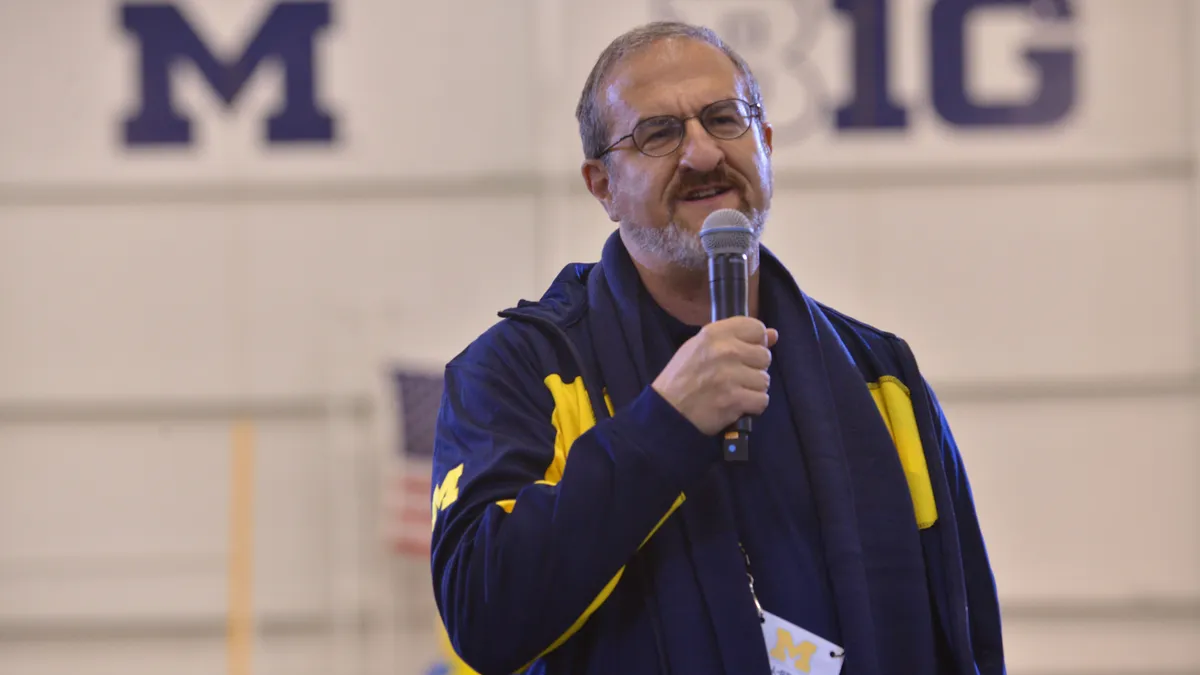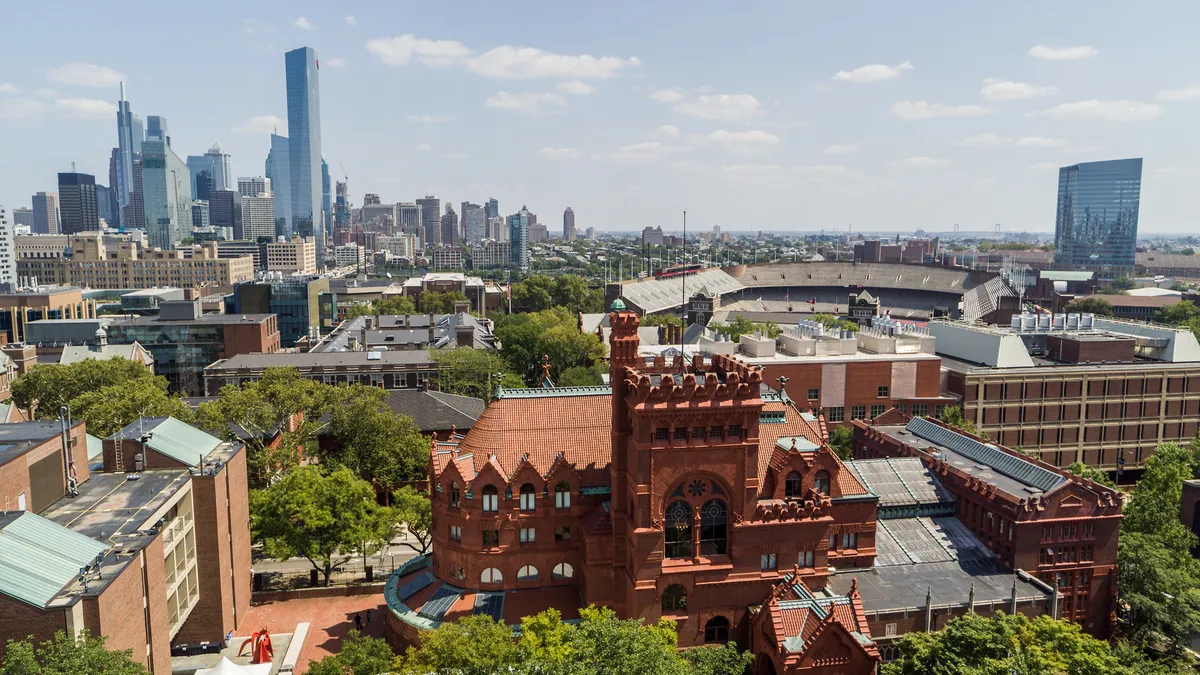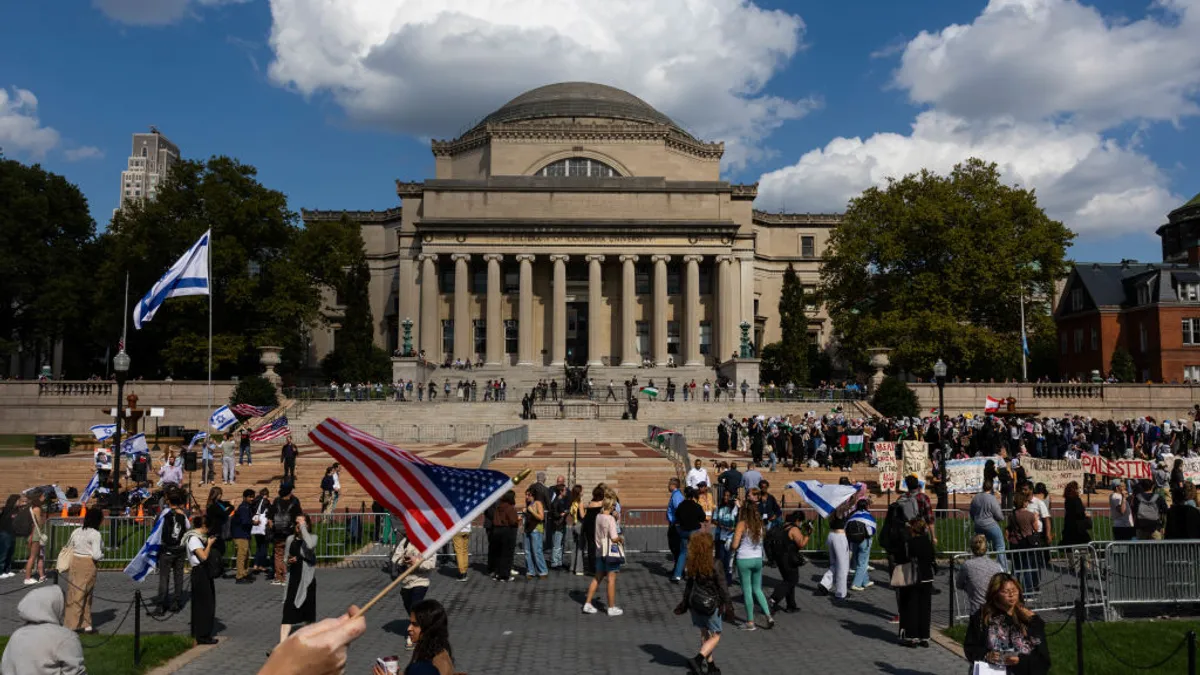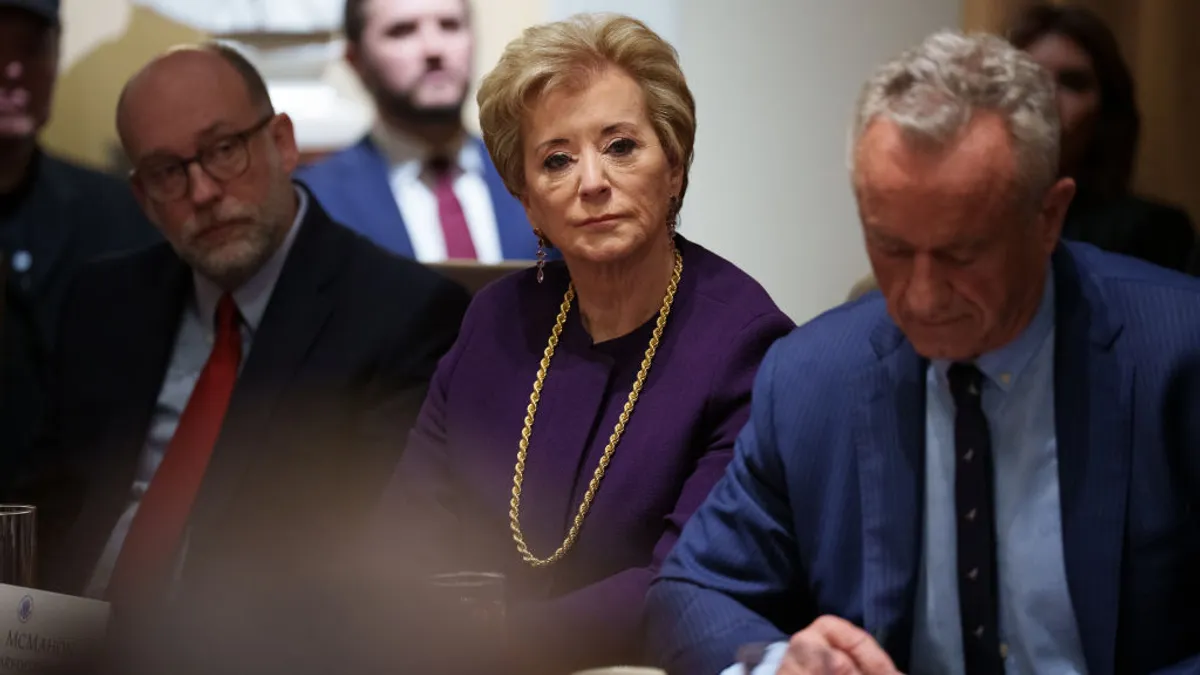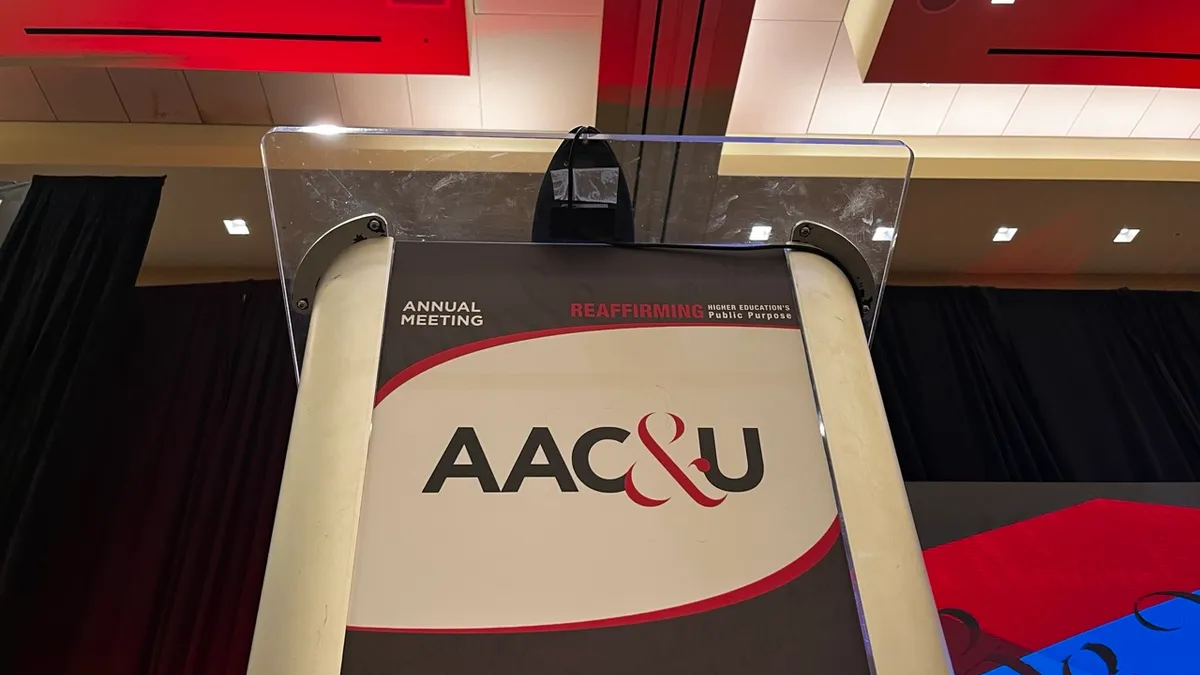At a meeting with University of Michigan faculty in the fall of 2021, the institution's president, Mark Schlissel, stood to give a speech and removed his face mask.
Schlissel told the crowd the university's coronavirus safety rules allowed him to take off the mask while he presented. He said otherwise his glasses would fog up while he spoke, recalled Colleen Conway, a music education professor and past chair of the university's faculty senate who attended the meeting.
To Conway, the remark illustrated a disconnect between Schlissel and the rank-and-file faculty. Every day faculty wore masks in the classroom and dealt with far greater pandemic-era inconveniences, she said.
"He didn't understand what it was like to be in the classroom anymore," Conway said.
Schlissel was fired over the weekend because of an alleged sexual affair with a woman who was his subordinate. The regents received an anonymous complaint Dec. 8 and found he'd used his university email account for years "to communicate with that subordinate in a manner inconsistent with the dignity and reputation of the University," according to an announcement from U of Michigan's governing board.
He leaves behind a university short on confidence. The now-former president and other university leaders were often perceived as failing to listen to many of instructors' concerns, which exacerbated a schism between administration and swaths of the university community, according to faculty members.
Schlissel's successor will need to rebuild this trust while contending with the continued fallout of coronavirus-related and sexual abuse controversies that defined his tenure, they said.
The university has made progress on administrator accountability, according to faculty, but the current campus environment could dissuade an already-limited pool of presidential candidates. The pandemic has stressed chief executives, and U of Michigan's new president must not only be qualified to helm one of the most prestigious public research institutions in the U.S., which has massive, lucrative athletics and health systems. Its next president must also help heal a university marred by scandal.
Tumultuous times at U of Michigan
Regents hired Schlissel in 2014 to lead the 50,000-student university with its flagship in Ann Arbor. He replaced Mary Sue Coleman, who went on to lead the Association of American Universities, a group of prominent research universities, from 2016 to 2020. Coleman has returned as president on an interim basis and has been praised as a strong choice for acting replacement.
A medical scientist, Schlissel attracted ire for his handling of the coronavirus crisis in 2020. The university was criticized for allegedly opaque policies that led to a strike among the graduate employees' union and student resident assistants that year.
Almost simultaneously, the university was grappling with two high-profile sexual misconduct cases. Schlissel in March 2020 dismissed the institution's provost, Martin Philbert, after a university-commissioned investigation revealed Philbert sexually harrassed women since arriving there in 1995. The review also noted allegations against Philbert had come to light on multiple occasions, but were not acted on.
In November 2020, the university settled with eight women Philbert harassed for $9.25 million. The next year, the same law firm that conducted the Philbert investigation found a late university doctor, Robert Anderson, had sexually assaulted hundreds of students over his 37-year tenure.
With his affair, Schlissel violated a policy against supervisor and employee relations, one instituted last year in the aftermath of the Philbert case.
The regent board published a letter to Schlissel detailing his dismissal, along with a horde of emails from the ex-president's university account to his subordinate. In one email with an itinerary of a flight to Europe attached, Schlissel suggested that he and the employee miss a connecting flight "and get stuck in Paris." In another, he calls the woman "sexier."
"Your conduct as summarized above is particularly egregious considering your knowledge of and involvement in addressing incidents of harassment by University of Michigan personnel, and your declared commitment to work to 'free' the University community of sexual harassment or other improper conduct," the regents wrote in the letter.
Schlissel had his contract renewed for five years until 2024. But he had announced he would step down a year early, in 2023, after negotiating with the regent board, which the Detroit Free Press reported in October was "deeply divided" over his presidential record.
University spokesperson Rick Fitzgerald declined to make officials available for interviews on Tuesday. He said in an email Coleman has not yet signed a contract.
Schlissel's demeanor
Recent controversies aside, faculty's problem with Schlissel often stemmed from how he seemed not to listen to others, professors said in interviews. They also felt formal channels for reporting issues to administrators were ignored, Conway said.
The Philbert investigation unearthed that an employee in a 2019 faculty survey flagged the former provost's misconduct, describing him as "a notorious sexual predator." Schlissel said he "missed" the allegation. Investigators in the Philbert case also identified that more than a decade ago, a former provost in an email alerted Coleman to Philbert's actions.
The report produced from the probe in 2020 states Coleman can't remember receiving the message and "acknowledged that she may not have weighed or viewed this information in 2010 in the same way that she would today."
Many faculty members perceived Schlissel to be dictating decisions rather than explaining them, said David Potter, a longtime U of Michigan professor in classic studies. The president, for example, failed to account for faculty's changing comfort teaching in person as coronavirus cases spiked and receded over the past two years.
"It seemed like he was saying, 'You all have to shut up and go about your business,'" Potter said.
Schlissel's and the regent board's demeanors shifted, however, after faculty passed a no-confidence vote in his leadership in September 2020, a move related to the university's coronavirus policies and the Philbert case.
After that, Schlissel and the board tried to make more of an effort to hear faculty, Conway said. The regents moved away simply from "token lunches" with faculty representatives, she said. The board has held more frequent meetings with professors and responded quickly to direct communication, she said.
Schlissel's replacement will need to display a strong sense of empathy to restore trust among university constituencies, said Allen Liu, chair of the faculty senate and a mechanical engineering professor.
The former president’s affair was particularly appalling considering the university's recent history, and U of Michigan now needs a leader who can "walk the walk," Liu said.
"We need someone of the highest integrity to lead our university, essentially not someone who knows all the rules but is just putting on a performance for the outside world to see," he said.
Is a culture shift ahead?
The regents' swift action on Schlissel demonstrates they understand a need for a large cultural shift beyond just naming a new president, said Alvin Schexnider, a senior consultant and senior fellow at AGB Consulting, which provides guidance to governing boards.
The release of the president's emails was particularly unusual. But it suggests the board knows this "is a watershed moment for the institution," Schexnider said.
"It's about someone who gets and understands they need to set the institution on a new course and staunch the hemorrhaging," he said.
Faculty described a siloed system of leadership at U of Michigan, in which the upper echelons of administrators largely leave deans and directors to guide the 19 colleges.
This style can benefit the unique needs of the individual schools, but it also means little oversight of poorly performing officials, Potter said. The university hasn't set specific criteria for which a dean can be ousted, he said.
A university consultant has called for creating a new compliance and ethics office that would serve as a check on top administrators. Faculty leaders have strongly backed that idea, Potter said. This would break the "looped" communication system — for instance, the university's previous iteration of its sexual misconduct department reported directly to the provost, which would have been Philbert.
"This is critical for change," Potter said of the new office.
However, finding a presidential candidate willing to take on the enormous weight of scandal could prove difficult, said Demetri Morgan, a higher education professor at Loyola University Chicago.
Pandemic stress is already burning out high-ranking administrators, he said. The president of Elizabethtown College, in Pennsylvania, resigned this year, citing pandemic burdens as one reason for her exit.
And only some officials are qualified to guide an institution like U of Michigan, Morgan said. The university boasts a sprawling hospital system and Big 10 athletic program that Schlissel is partially credited for revitalizing.
Morgan predicted the regent board will likely pick someone "completely different," from Schlissel, a typical play from colleges intent on vacating "the stench" of scandal. He pointed as an example to the University of Southern California's choice of Carol Folt as president in the wake of the institution being rocked by the Varsity Blues scandal and prominent sexual misconduct controversies. Folt had "opposite social identities" to her predecessor, C. L. Max Nikias, Morgan said.
U of Michigan will still likely want a leader with a strong academic background, but it may vet nontraditional choices like someone with a business or political background, Morgan said.
Despite dissuasive factors for applicants, Michigan boasts a strong brand and prestige, Morgan said.
"You get to try to restore that glory," he said. "That will be appealing to a lot of people."



